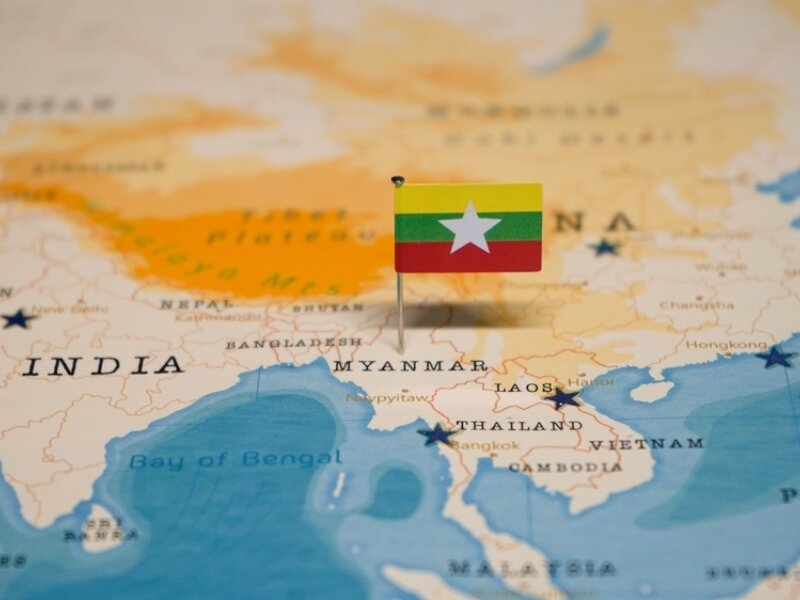What future for Lebanon?
Economic difficulties cast a shadow over the future of the country.

In the last 18 months, Lebanon has been facing devastating difficulties. According to the World Bank, the financial and economic crisis “is likely to rank in the top 10, possibly top three, most severe crisis episodes globally since the mid-nineteenth century”[1].
The most recent data, relating to 2021, paint a bleak picture: the GDP, which was about US$52 billion in 2019, has plunged by 58 percent to a projected US$21.8 billion[2]. Since the start of 2022, the Lebanese pound has lost 15 percent of its value[3] - a 90 percent devaluation compared to 2019. According to the last update, the inflation rate has reached 224.39 percent[4]. To make things worse, the Government is planning a further 93 percent devaluation of the Lebanese pound and a conversion of currency deposits in local banks into national currency[5].
The draft budget prepared for 2022 provides for a 20.8 percent deficit, and fees and taxes are planned to raise revenues. Moreover, it seems that the Government might introduce a multiple exchange rates system, which goes against some of the conditions set by the International Monetary Fund (IMF) to help the country[6].
Such extreme conditions have caused prices to skyrocket and greatly limited households’ purchasing power. According to World Bank 2021 data, “the share of Lebanese population under the international poverty line” may have grown by 28 percent[7]. In Lebanon, however, poverty is “multidimensional”, its rate being determined not only by actual economic deprivation, but also by the lack of access to services like electricity and healthcare, or areas like education and employment. Based on this concept, in 2021, 82 percent of the total population lived in poverty[8].
The lack of fuel and electricity is a major concern. Power cuts may last 22 hours or more and happen randomly across the country[9]. Although some oil supplies came in from Iran, through Hezbollah’s good offices, this was not enough. The country is signing electricity deals, the last one of which was signed with Jordan, last week, for a supply of power via Syria[10]. This deal and the one already signed with Egypt last year should be funded by the World Bank, but they are considered to be “mere band-aid” measures.[11]
The World Bank considers the Lebanese depression as a “deliberate” crisis, for which politicians and institutions are to blame. Experts argue that the crisis was “self-imposed”, “or more precisely, it was imposed onto the general population by the deliberate inaction of the elite that has long ruled the country and captured the state and its associated economic rents”[12].
While the internal political struggle is raging, Saad Hariri, a three-time prime minister and the leader of the Future Movement party, resigned as a Prime Minster at the end of January and urged his party and Sunnis in general not to get involved in elections scheduled for May.
Mr. Hariri, who comes from a very prominent political family and whose father Rafik was assassinated in 2005, said he is convinced that “there is no room for any positive opportunity for Lebanon in light of Iranian influence, international confusion, national division, flaring sectarianism and the withering of the state”. His party has always been considered as a counterbalance to the ever-increasing power of Iran-backed Hezbollah[13].
Further challenges for the country have stemmed from the diplomatic crisis with the Gulf countries, following comments by former Information Minister George Kordahi criticizing the conflict in Yemen. Efforts to revive relations between Lebanon and the Gulf countries included a visit by Kuwait’s Foreign Minister to Beirut on 22 January. On this occasion, he presented a list of 12 requests, which included political change and the disarmament of Hezbollah militias[14]. These were rejected by Lebanon’s Foreign Minister Abdallah Bouhabib, who stated that the group is “a “Lebanese party par excellence”, which is part of the government but not dominating Lebanese politics[15].
The World Bank, the IMF, Arab countries and the international community in general are demanding fundamental economic, financial and political reforms to unblock aid and avoid the complete destruction of the country’s economic and social fabric. Yet no real change seems to be around the corner.
The real question could actually be: is Lebanon going to have a future? Aside from the multifaceted crisis that the political elite has caused and is now ineffectively managing, the biggest threat seems to lie in the mass drainage of highly educated human resources caused by rising poverty, lack of access to education and high unemployment rates. Experts in all areas and highly skilled workers are fleeing the country and a recent survey indicates that 77 percent of Lebanese youths are planning to leave in search of better opportunities[16]. This puts at risk the country’s revival and, hence, its future.
[1]https://openknowledge.worldbank.org/bitstream/handle/10986/35626/Lebanon-Economic-Monitor-Lebanon-Sinking-to-the-Top-3.pdf?sequence=1&isAllowed=y, p11).
[2]https://openknowledge.worldbank.org/bitstream/handle/10986/36862/LEM%20Economic%20Monitor%20Fall%202021.pdf?sequence=2&isAllowed=y.
[3]https://www.reuters.com/world/middle-east/lebanons-currency-plummets-again-amid-financial-crisis-political-deadlock-2022-01-11/.
[4]https://tradingeconomics.com/lebanon/inflation-cpi.
[5]https://www.reuters.com/markets/rates-bonds/lebanon-plan-sees-93-currency-slide-turns-bulk-fx-deposits-pounds-2022-01-31/.
[6]https://library.eurasiagroup.net/document/view/wfpub_eurasia_10072_519242fc/wfpub_eurasia_10072_519242fc.html.
[7]https://www.worldbank.org/en/country/lebanon/publication/economic-update-october-2021.
[8]https://www.unescwa.org/sites/default/files/news/docs/21-00634-_multidimentional_poverty_in_lebanon_-policy_brief_-_en.pdf.
[9]Ivi.
[10]https://www.al-monitor.com/originals/2022/01/lebanon-signs-new-electricity-deal-jordan-syria.
[11]https://library.eurasiagroup.net/document/view/wfpub_eurasia_10072_519242fc/wfpub_eurasia_10072_519242fc.html.
[12]https://openknowledge.worldbank.org/bitstream/handle/10986/36862/LEM%20Economic%20Monitor%20Fall%202021.pdf?sequence=2&isAllowed=y:
[13]https://www.nytimes.com/2022/01/24/world/middleeast/saad-hariri-lebanon-quits.html.
[14]https://library.eurasiagroup.net/document/view/wfpub_eurasia_10072_519242fc/wfpub_eurasia_10072_519242fc.html .
[15]https://www.aljazeera.com/news/2022/1/29/lebanon-will-not-hand-over-hezbollah-weapons-foreign-minister .
[16]https://foreignpolicy.com/2021/12/26/lebanon-economic-crisis-politics-covid-2021/.



